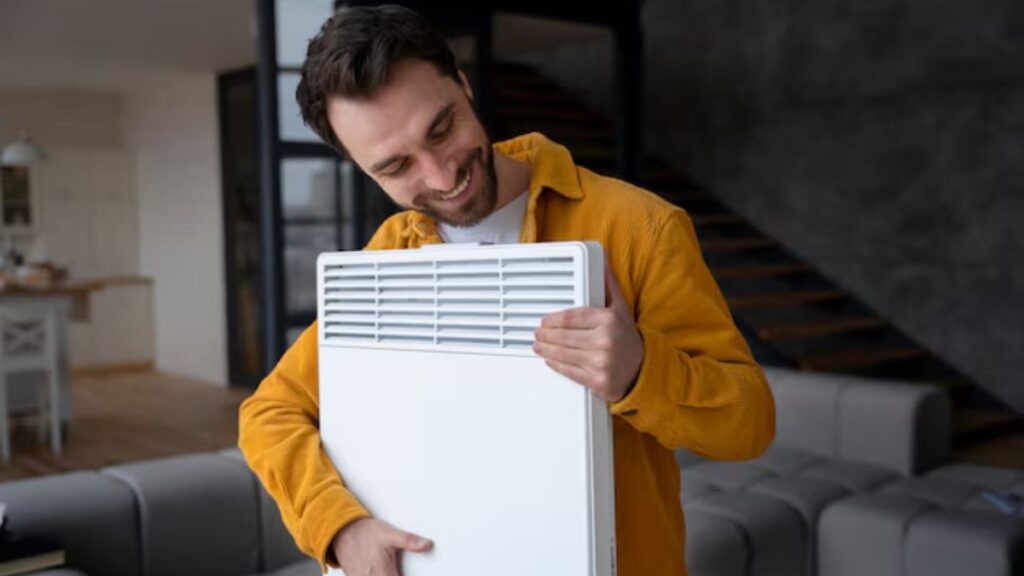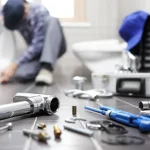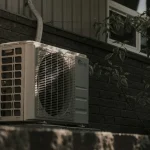Your home’s HVAC (heating, ventilation, and air conditioning) system plays a vital role in maintaining a comfortable and energy-efficient living environment. Keeping it in peak condition not only ensures optimal performance but also extends its lifespan and reduces energy costs. By adopting regular maintenance practices and addressing issues promptly, you can avoid unexpected breakdowns and keep your HVAC system running smoothly year-round.
Schedule Regular Maintenance and Inspections
Routine maintenance is the cornerstone of keeping your HVAC system in top condition. Professional inspections help identify potential issues before they escalate into costly repairs or replacements.
An HVAC technician should check your system at least once a year, ideally before the cooling or heating season begins. They will inspect components such as the coils, fan motor, refrigerant levels, and electrical connections. If you notice reduced efficiency or inconsistent performance, consulting an AC repair company can ensure any underlying issues are addressed promptly. Regular servicing not only enhances system efficiency but also minimizes wear and tear, ultimately extending the unit’s lifespan.
Homeowners should also perform basic maintenance between professional visits, such as clearing debris around the outdoor unit and checking for visible signs of damage or wear.
Replace Air Filters Regularly
Replacing air filters is one of the simplest yet most impactful steps in maintaining your HVAC system. Filters trap dust, allergens, and other particles, preventing them from circulating through your home. Over time, filters can become clogged, reducing airflow and forcing your system to work harder.
Check your air filter every one to three months, depending on usage and whether you have pets or family members with allergies. High-quality filters may last longer, but it’s essential to follow the manufacturer’s recommendations. A clean filter not only improves air quality but also reduces energy consumption and prevents unnecessary strain on your HVAC system.
Clean and Maintain the Outdoor Unit
The outdoor component of your HVAC system typically called the condenser or heat pump, requires regular cleaning to function effectively. Leaves, dirt, and debris can accumulate around the unit, obstructing airflow and affecting performance.
Start by turning off the power to the unit. Use a garden hose to gently clean the fins, which are the thin metal slats surrounding the condenser. Avoid using high-pressure water, as this can damage the fins. Trim any nearby vegetation to ensure at least two feet of clearance around the unit, allowing for proper airflow.
Inspect the outdoor unit periodically for signs of damage, such as bent fins or corrosion. Addressing these issues early can prevent larger problems down the line.
Optimize Your Thermostat Settings
Efficient thermostat usage can make a significant difference in your HVAC system’s performance and energy costs. Consider upgrading to a programmable or smart thermostat, which allows you to set specific temperatures for different times of the day and adjust settings remotely.
During the summer, set your thermostat to the highest comfortable temperature when you’re home and increase it when you’re away. In the winter, do the opposite by keeping the thermostat lower when you’re out. These adjustments reduce the workload on your HVAC system, leading to lower energy bills and prolonged system life.
Smart thermostats also provide data on energy usage and system performance, helping you make informed decisions about optimizing your HVAC system.
Seal and Insulate Your Home
Your HVAC system’s efficiency depends not only on its condition but also on the overall insulation of your home. Air leaks in windows, doors, or ductwork can force your system to work harder to maintain the desired temperature.
Inspect your home for drafts and seal any gaps with weatherstripping or caulk. Ensure your attic, walls, and crawl spaces are properly insulated. Well-insulated homes retain heat in the winter and cool air in the summer, reducing the strain on your HVAC system and lowering energy costs.
Ductwork is another area where energy loss commonly occurs. Have your ducts inspected for leaks or damage, and consider having them professionally sealed if necessary.
Monitor System Performance
Paying attention to your HVAC system’s performance can help you catch issues early. Unusual noises, inconsistent airflow, or uneven heating and cooling are common signs of trouble. If you notice higher energy bills without a corresponding change in usage, it could indicate reduced system efficiency.
Set reminders to check your system’s components periodically, including the thermostat, vents, and ductwork. Ensure that vents are not blocked by furniture or curtains, as restricted airflow can affect performance.
When something seems off, don’t ignore the problem. Promptly addressing minor issues can prevent more extensive and costly repairs in the future.
Address Humidity Control
Humidity levels significantly impact indoor comfort and your HVAC system’s performance. Excess humidity can make your home feel warmer in the summer, causing your air conditioner to work harder. In the winter, overly dry air can lead to discomfort and health issues.
Consider investing in a dehumidifier to manage excess moisture during the summer months. Many HVAC systems can integrate with whole-house humidifiers or dehumidifiers, ensuring optimal humidity levels year-round. Regularly check the drainage system of your HVAC unit to prevent clogs that can contribute to humidity-related issues.
Be Prepared for Seasonal Transitions
Transitioning between seasons can put extra strain on your HVAC system, making preparation essential. Before the summer heat or winter chill arrives, inspect your system to ensure it’s ready for the demands of the upcoming season.
During the fall, clear leaves and debris from the outdoor unit and schedule a professional inspection to check for any issues that might affect winter heating. Similarly, before summer begins, ensure your air conditioning components are in good working order.
Taking these steps ensures your system can handle the changing weather without unexpected breakdowns or reduced efficiency.
Plan for System Upgrades or Replacements
Even with proper maintenance, HVAC systems have a finite lifespan. Most units last between 10 and 15 years, depending on usage and maintenance. If your system is approaching the end of its life or requires frequent repairs, it might be time to consider an upgrade.
Newer HVAC systems are significantly more energy-efficient and often come with advanced features like smart controls, zoning capabilities, and improved air filtration. While the upfront cost may be higher, the long-term savings in energy bills and repair costs make it a worthwhile investment.
Consult with an HVAC professional to determine the best replacement options for your home, taking into account factors like size, efficiency ratings, and budget.
By following these steps, you can keep your HVAC system in excellent condition, ensuring a comfortable and energy-efficient home environment for years to come. Proactive maintenance and smart upgrades will not only save you money but also give you peace of mind knowing your system is ready to handle your family’s needs.







